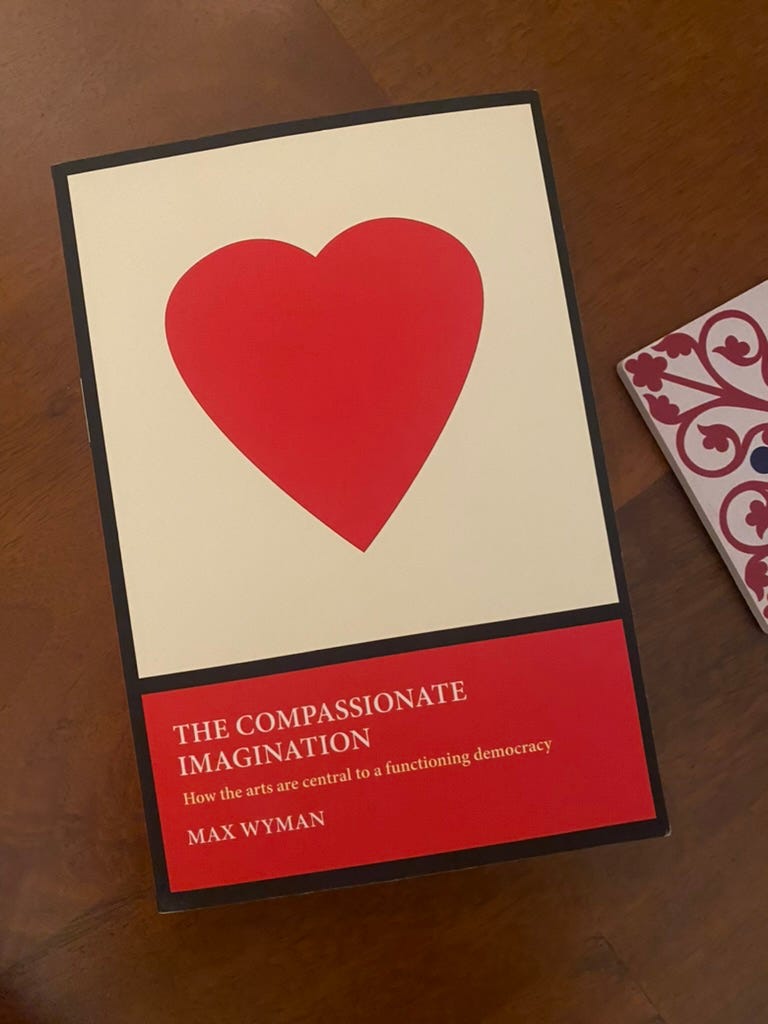In this update a short reflection, recommended reading and a quote.
Reflection
Over the last week I’ve had a recurring argument with my Dad. He often says one thing but means another. The favourable interpretation is a harmless slip of the tongue, the more alarming one is early onset dementia. Yet I suspect we are quite far off from a medical diagnosis. I take great pleasure in winding him up, taking his innocent lapses in concentration and skewing the interpretation of his gaffes so what I take him to mean is not at all what he intended.
Most agree that the onus of interpretation lies on the mind of the receiver, but there is an argument to be made that this responsibility is shared. The argument that the words profoundly shape the way in which we think about the world is not a new one. But to what extent can words influence policy and action? Take the study referenced by Aeon’s magazine’s article in which two groups of people read a report on the rate of crime in a city. One report described crime as “a virus ravaging the city” whereas the other described crime a “a beast ravaging the city” in all other respects the facts of the report were identical. The article goes on to explain that:
“Those who were primed to have the conceptual metaphor CRIME AS A BEAST were much more likely to recommend punitive measures, such as increasing the police force and putting criminals in jail. Those who were primed to entertain CRIME IS A VIRUS tended to suggest measures that are associated with epidemiology: to contain the problem, to identify the cause and treat it, and to implement social reforms.”
Even more alarming, the groups were unaware of the effect of the words on their decisions with both groups pointing to the exact same set of crime statistics as the most influential determinant.
Where lies the value of teaching the concepts of metaphor, simile and alliteration? What profession in today’s increasingly global economy will demand fluency in literary devices? As an English teacher I will be the first to tell you that absolutely no-one will ask you to identify a metaphor outside a secondary English class. But this hardly means there is no value.
The use of metaphors in our everyday language are not always obvious but if we take a pause, we find them littered everywhere. Identity as spectrum, the pandemic as a battlefield, marriage as a journey, and borrowing from Lakoff and Johnson, that of time as money, the orientational metaphors of happy as up, and sad as down, and that of argument as a war, “claims are indefensible…criticisms were right on target... If you use that strategy… He shot down my arguments..” They take root so deeply and are so intricately woven into the fabric of society that we struggle to see them even when right in front of us. They are so deeply embedded we fail to recognise them, understand their implications, and are constrained in our imagination. It is important for us to take a moment, to think about the conceptual metaphors we are lured into using, and how an alternate phrase, word, or comparison can open up entire worlds of new meaning.
The challenge is to articulate this value in a world in which reading is in decline, in which the artificial intelligence has further distanced us from the art and science of writing, in which collective attention spans are shortening, and one in which technical and scientific expertise promises greater financial reward than a career in the humanities.
Recommended Reading:
“Arts for Transformative Education” (UNESCO)
This week on the heels of UNESCO’s World Conference on Culture and Arts Education 2024. UNESCO released a report entitled “Arts for Transformative Education” which “identifies four dimensions of arts learning experiences: Context, actions, relevance and outcomes. The model also recognises special affordances associated with the arts that can enhance learning experiences.”
Quote:
This week’s quote comes from a book I bought last weekend entitled, “The Compassionate Imagination: How the Arts are Central to a Functioning Democracy” by Max Wyman.
“In a compassionate society, the provision of access to arts and culture is neither an imposition of taste nor an act of charity. It is an investment in the health of the community and the nation, like roads and schools and hospitals. It’s not something we underwrite off the side of the desk with the dribs and drabs that are left over when everything else has been taken care of; its part of everything else.”





great article, farhan; totally buy in to the amusement of challenging close ones with what they said instead of what they mean; the influence of words is amazing as you demonstrate with ‘virus’ and ‘beast’; nice plug on the arts as well; if you haven’t already, consider watching chalmers brothers’ ted talk on how words do more than describe - that they actually create and generate; further, being conscious of the words we use, can, or need to, serve your goals; one of my take aways was on how the most powerful words may simply be ‘i don’t know’ - what a way to welcome fertilizer and growth for any subject, and of course, to serve your goal; thanks, take care;